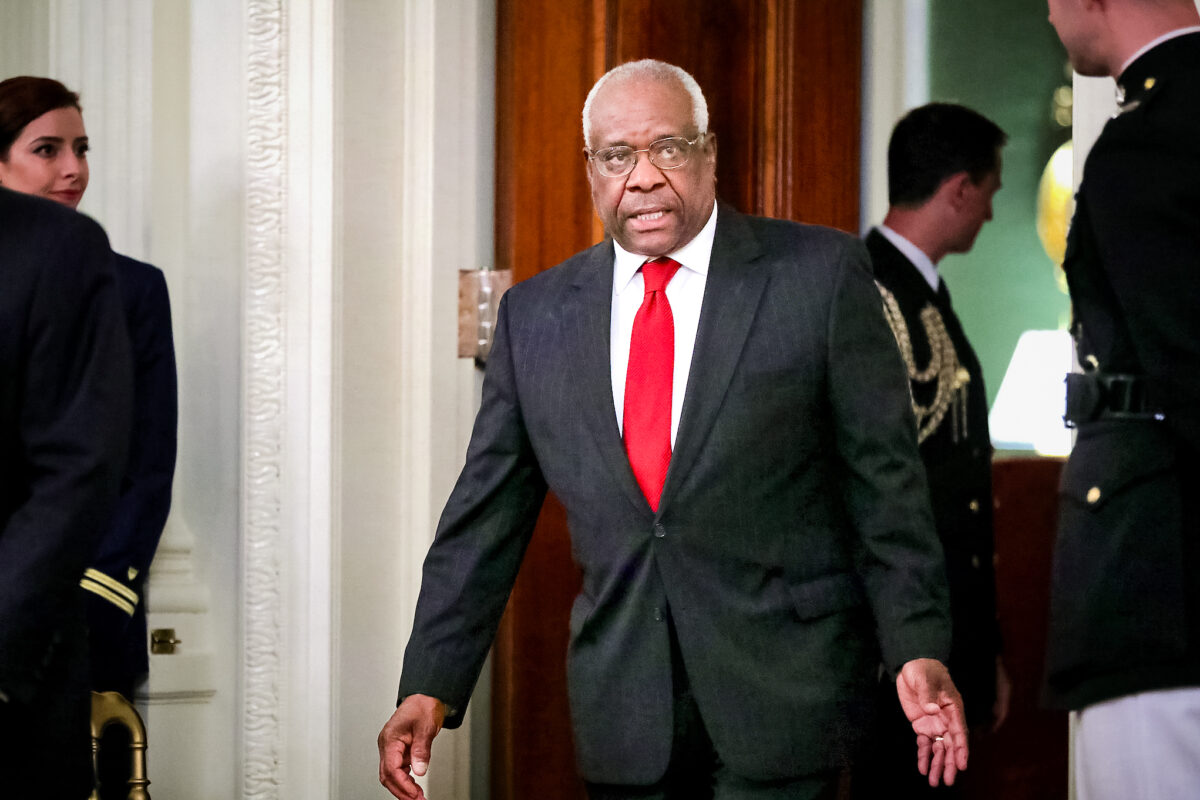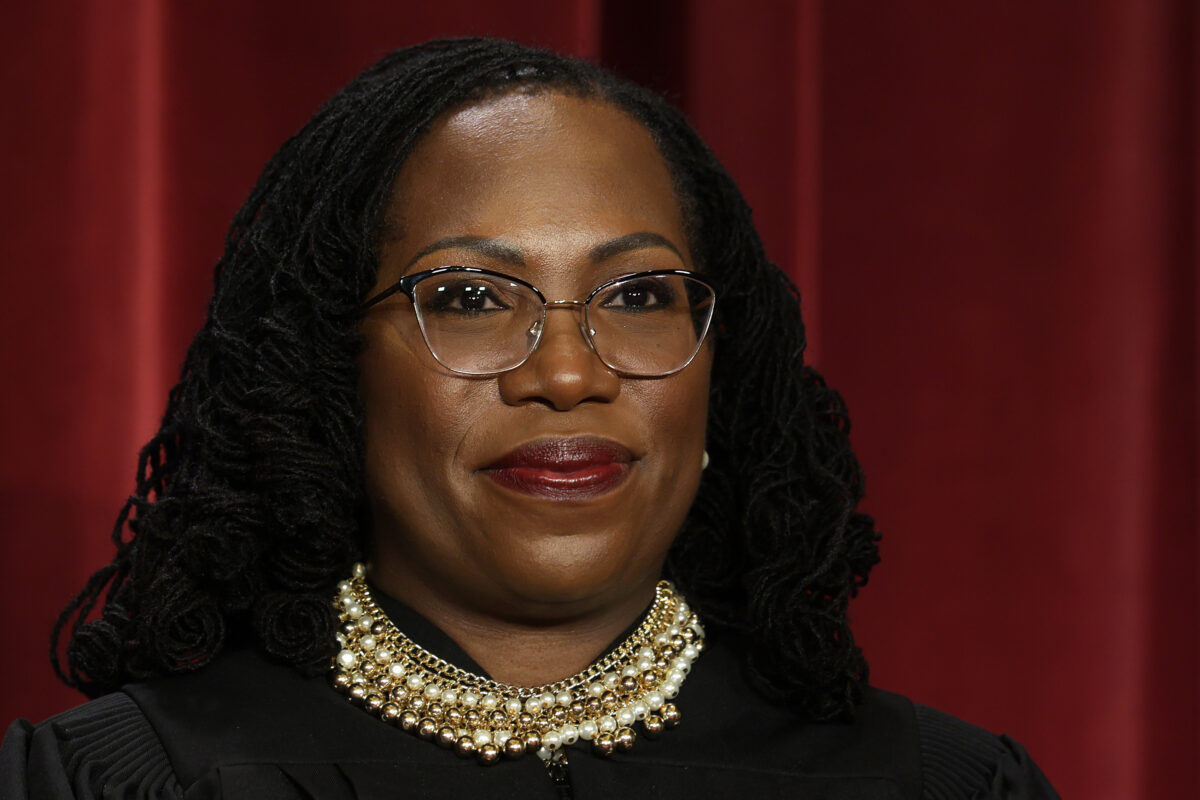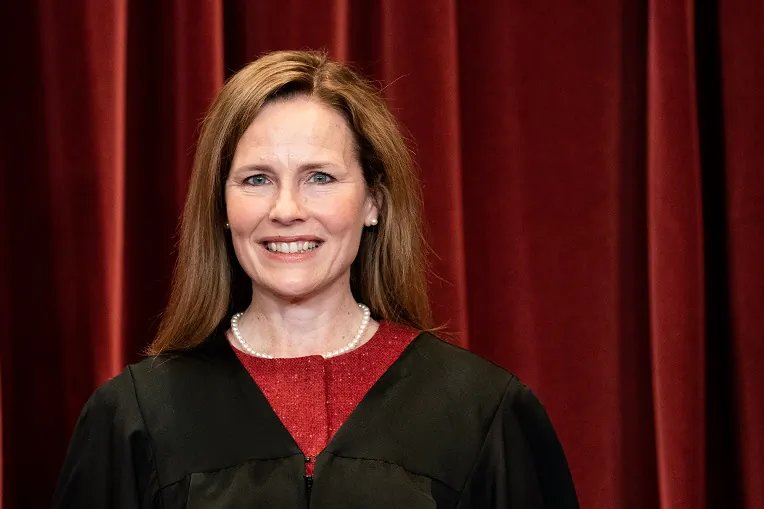“After concluding that this statute criminalizes immigration advocacy and other protected speech, the Ninth Circuit held it unconstitutionally overbroad under the First Amendment. That was error,” Justice Amy Coney Barrett, a Trump appointee, wrote for the majority.
“Properly interpreted, this provision forbids only the intentional solicitation or facilitation of certain unlawful acts,” she added.
The law in question prohibits encouraging or inducing illegal immigration for “commercial advantage or private financial gain.”
The case was brought to the nation’s highest court by the government.
A man named Helaman Hansen was convicted in 2017 by a jury in California of violating the law as well as committing wire fraud. He was sentenced to 20 years in prison.
According to evidence disclosed during the trial, Hansen from 2012 to 2016 sold memberships to a “migration program” that falsely promised people they could become U.S. citizens.
“A central feature of the program was the fraudulent claim that immigrant adults could achieve U.S. citizenship by being legally adopted by an American citizen and completing a list of additional tasks,” U.S. prosecutors said previously.
Not one of the approximately 500 people who paid Hansen as much as $10,000 became a citizen. Federal authorities had told Hansen as early as 2012 that aliens adopted after turning 16 could not obtain citizenship.
Hansen’s lawyers argued that the law infringes on rights conferred by the U.S. Constitution’s First Amendment so much that it should not apply to anyone.
A panel of the U.S. Court of Appeals for the Ninth Circuit in 2022, agreed, vacating the convictions for inducement.
“It is clear that subsection (iv) covers a substantial amount of protected speech. Many commonplace statements and actions could be construed as encouraging or inducing an undocumented immigrant to come to or reside in the United States. For example, the plain language of subsection (iv) covers knowingly telling an undocumented immigrant ‘I encourage you to reside in the United States,'” U.S. Circuit Court Judge Ronald Gould, a Clinton appointee, wrote for the majority.
U.S. Circuit Court Judge Daniel Collins, a Trump appointee, joined in the ruling while U.S. Circuit Court Judge Patrick Bumatay, another Trump appointee, dissented.
The appeals court refused to rehear the case, resulting in the government asking the Supreme Court to overrule the lower court.
The appeals court ruling ruled wrongly, authorities said, pointing to how it did not identify a single instance in history when the law has been applied to speech protected by the Constitution. Previous rulings have found that speech “used as an integral part of conduct in violation of a valid criminal statute” is not constitutionally protected.
A majority of the Supreme Court agreed with the government.
“To the extent that clause (iv) reaches any speech, it stretches no further than speech integral to unlawful conduct,” Barrett wrote.
She was joined in the 7–2 ruling by Justices John Roberts, Clarence Thomas, Samuel Alito, Elena Kagan, Neil Gorsuch, and Brett Kavanaugh.


Thomas, a George H.W. Bush appointee, said in a concurring opinion that “there is no question that the First Amendment does not shield respondent’s scheme from prosecution” and criticized the widening usage by judges of the overbreadth doctrine to strike down or curtail laws.
In a dissent, Justice Ketanji Brown Jackson, a Biden appointee, accused the majority of reading a broad law as a narrow prohibition to avoid invalidating the law under the doctrine.
“It is neither our job nor our prerogative to retrofit federal statutes in a manner patently inconsistent with Congress’s choices,” she wrote. “Moreover, by acquiescing to the Government’s newly minted pitch to narrow this statute in order to save it, the majority undermines the goal of the overbreadth doctrine, which aims to keep overly broad statutes off the books in order to avoid chilling constitutionally protected speech.”
Justice Sonia Sotomayor joined the dissent.
The government did not immediately provide a comment on the ruling.
Esha Bhandari, a deputy director at the American Civil Liberties Union, which has helped represent Hansen, said in a statement that the ruling “has drastically limited the encouragement provision to apply only to intentional solicitation or facilitation of immigration law violations.”
“As written by Congress, the law has left people wondering what they can safely say on the subject of immigration,” Bhandari said. “Now we expect the government to respect free speech rights and only enforce the law narrowly going forward.”
Carolyn Wiggin, a federal defender representing Hansen, added that the decision “reaffirms that the government can only make speech a crime under very stringent circumstances.”
https://www.theepochtimes.com/ban-on-encouraging-illegal-immigration-not-unconstitutional-supreme-court_5352185.html



No comments:
Post a Comment